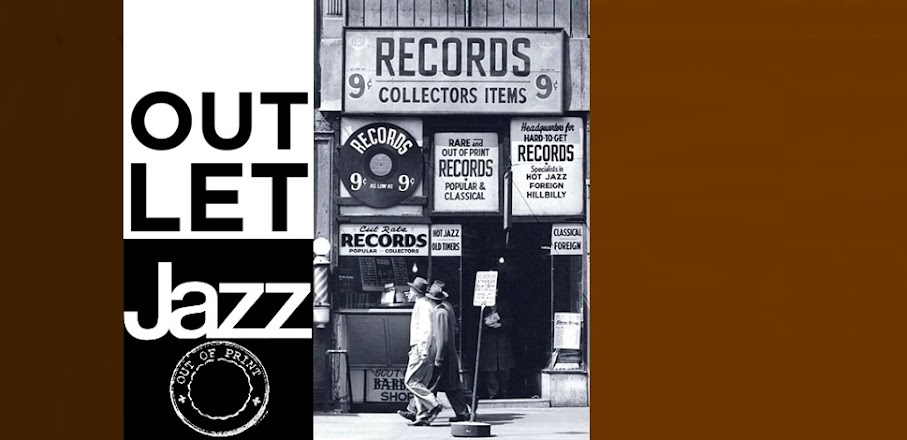In all of the awed recognition of the overwhelming influence that Charlie (Bird) Parker has had on the way jazz has developed during the past decade, it is only occasionally that one comes face to face with the problems that follow in the wake of so pervasive an influence. These problems are most noticeable in the area of Parker's own instrument, the alto saxophone.
If Parker pointed the way for jazz as a whole, he did much more for the alto sax. He set a pattern that has seemed so definitive that every alto man who has come after him, almost without exception, has taken to his pattern as though any deviation would be unthinkable heresy. This, of course, is the natural way for a jazz musician to start—there is always someone who is the inspiration and the guide.
But before Parker, no one —not even Louis Armstrong— had established an approach that was so universally accepted by the contemporary jazz generation.
As a consequence Parker, as a model, has been a trap —an inviting and exciting trap, to be sure— but nonetheless a trap for many young altoists who managed to acquire the surface qualities of Parker but, having done that, found they had no place to go but around and around the same repetitive and uncreative circle.
Neither Phil Woods nor Gene Quill were exceptions to the mode of the times when they started out on alto. Bird was the influence and they took to it with passion.
But, having used this convenient stepping stone to launch themselves in jazz, they both had the individuality and personal creativeness to realize that they had to avoid being suffocated by this influence. Building on the foundation they inherited, they have each moved in directions that are distinctly their own, and as time goes by the sound of their original inspiration has become steadily dimmer as their own musical personalities assert themselves.
Of the two. Woods has possibly developed the most completely individual attack at this point strong, assertive and gustily swinging. But Quill, who burst from the cocoon a Itit later than Woods, has recently been moving with startling and satisfying speed toward his own jazz fate.
The idea of teaming up has been stewing in the two altoists' minds for a couple of years, ever since they met at the apartment of pianist John Williams and started playing together in various groups. They found that they felt comfortable in each other's musical company and that more flexibility and variety were possible in the sound of two altos than in pairings of most other instruments.
The close musical and personal ties that bind Gene and Phil were made even tighter after they launched their own group (two altos and rhythm).
In the sextet heard in these performances, a "bottom" is provided for the two alto saxes by Sol Schlinger's baritone saxophone. The rhythm section is made up of the brilliant, swinging pianist, Dave McKenna; bassist Buddy Jones; and drummer Shadow Wilson, a widely experienced big-band veteran (Hampton, Hines, Basie, Herman).
The arrangements come from the pens of Woods; Neal Hefli and Nat Pierce, both quondam bandleaders; Bill Potts, who made his mark as a writer with Willis Conover's Washington band; and Gene Orloff, a violinist who is in great demand as concertmaster on jazz sessions when strings are used. *John S. Wilson (liner notes)*
The meetings of alto saxophonist Phil Woods and Gene Quill, such as this 1956 sextet date for RCA, are always enjoyable. In addition to baritone saxophonist Sol Schlinger, Woods and Quill are joined by pianist Dave McKenna, bassist Buddy Jones, and drummer Shadow Wilson. The focus is on the two altoists, but there is occasionally blowing room for Schlinger and McKenna, too. Gene Orloff's snappy "Sax Fifth Avenue" and Woods' brisk "Four Flights Up" are the highlights of the date, along with several works by Bill Potts. This is a typically solid effort by Phil Woods and Gene Quill.
*Ken Dryden*
Side 1
1 - Sax Fith Avenue
(Gene Orloff)
2 - Ready Rudy
(Neal Hefti)
3 - Cabeza
(Nat Pierce)
4 - Twin Funkies
(Phil Woods)
5 - Rib Roast
(Nat Pierce)
6 - High Stepping Bizzies
(Bill Potts)
Side 2
7 - Four Flights Up
(Phil Woods)
8 - Dig You P's And Q's
(Nat Pierce)
9 - Dry Chops In The Moonlight
(Bill Potts)
10 - Una Momento
(Phil Woods)
11 - Pottsville, U.S.A.
(Bill Potts)
12 - Frank The Barber
(Bill Potts)
Phil Woods, Gene Quill (alto saxes); Sol Schlinger (baritone sax); Dave McKenna (piano); Buddy Jones (bass); Shadow Wilson (drums).
Recorded in New York City, March 15, 1956.


https://1fichier.com/?581srl5eycomxi5ifgl4
ReplyDeleteMuchas gracias,
ReplyDeleteMany thanks, blbs.
ReplyDeleteThanks so much!!!
ReplyDelete